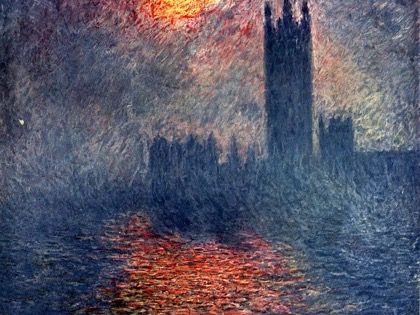DiffsGiftering

"The difference finally starts feeling like a gift rather than a curse …"
Those of us born with few natural gifts might understand better than those born with an abundance of them. We learned to hide them lest they expose us as different, for as we all learned in Junior High, different is bad, sameness, much better. Some of us struggled to fit in without noticing that we worked much harder to cloak our differences than we would have ever had to work to embrace them. School, which might be best understood as a systematic process for instilling self-consciousness, reinforced the notion that different was at best a difficulty. So much easier and more efficient if everyone could just color within prescribed lines. At the end of the year, if I'd successfully respected the edges, my teachers declared that I'd passed, which meant that they hadn't found me out; a victory … of sorts. ©2018 by David A. Schmaltz - all rights reserved
Junior High provided an exquisite introduction into the fine art of passing, an invaluable ability as one sought to enter ever higher levels of self-consciousness: university and the working world beyond. Early careers seem largely focused upon more finely focusing self-consciousness. We learn to read faces and rooms, situations and contexts, so that we might pass on to even higher levels of self-consciousness, the ones where we learn to pass on our hard-earned self-consciousness to others, so that they might benefit from a paranoid existence. Properly practiced, self-consciousness progressively discounts one's gifts until the day-to-day absence of them hardly hurts at all. We might grow to think of them as youthful follies, better left far behind, wherever in the heck we eventually convince ourselves we're going.
A proper gift should naturally set a person apart as different. It should come unbidden, though developing it further into a genuine skill might require considerable effort of the sort only ever properly undertaken when surrounded by jeering sameness. The early years might utterly alienate the gifted ones, convincing them that they must not belong either to or in this world. Acceptance of any such gift amounts to certifiably delusional behavior. Any attempt to capitalize on it must probably disappoint everyone involved. The prodigy might do well until his voice changes. The savant finds few friends and influences even fewer. The gift resembles no gift at first.
Most will, somewhere in middle age, sometime between eighteen and sixty, stumble back upon their gift. It might not look much like a gift then, either, for through the haze of accumulated self-consciousness, one simply cannot experience it unselfconsciously, as they did at first before the great homogenization began. Their gift makes their heart sing. What else need anyone know? The gift emerges out of the rubble of one of those mid-life crises and commences to take on a life of its own, a sliver of passionate unselfconsciousness surrounded by a vast common that claims to know better, but couldn't possibly. One finally learns how to not care what others think, losing that seemingly innate ability to second-guess one's self that years of concerted study and forced integration instilled. Then, the difference seems more of an identity, inseparable from self regardless of enticement. The difference finally starts feeling like a gift rather than a curse: DiffsGiftering, finally.


